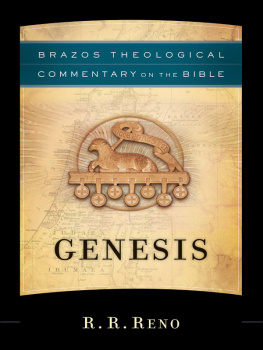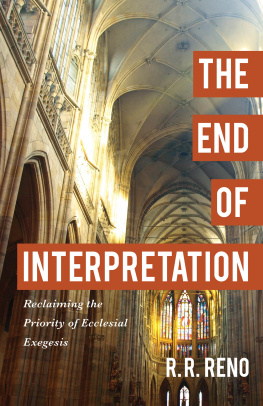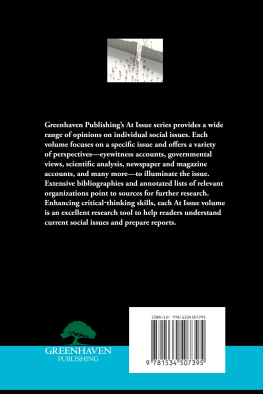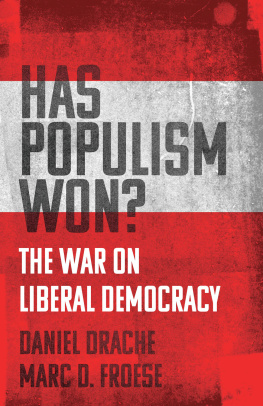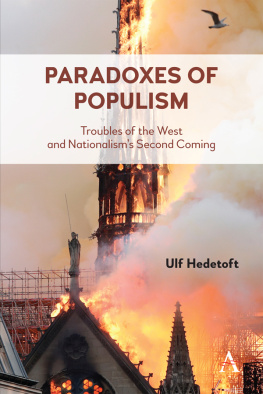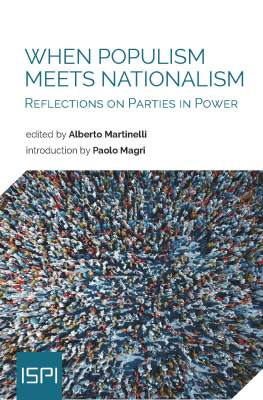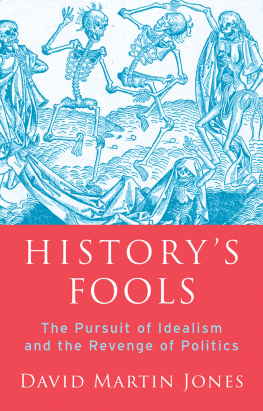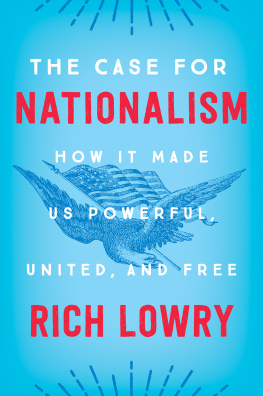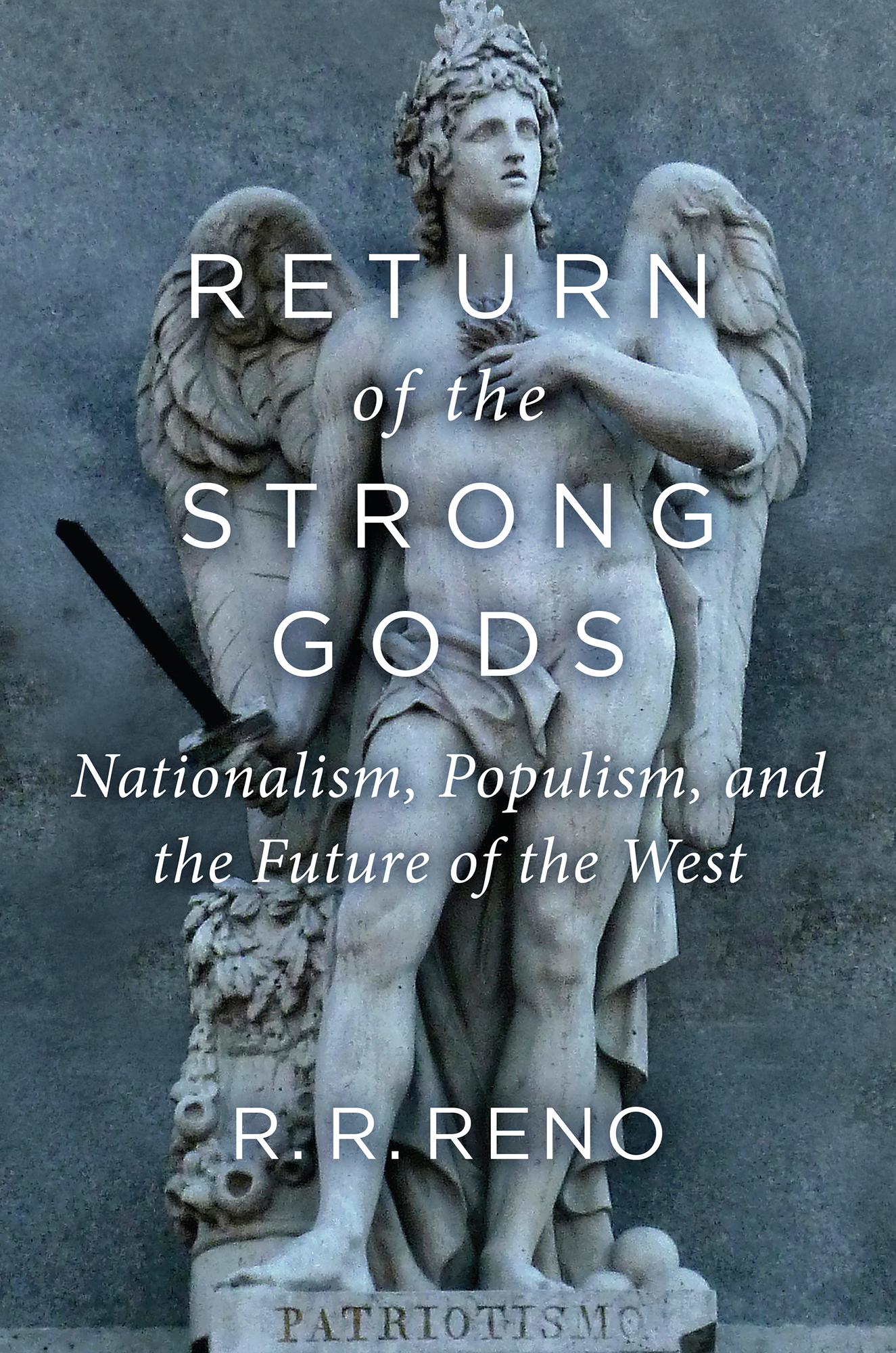Contents
Guide
Copyright 2019 by R. R. Reno
All rights reserved. No part of this publication may be reproduced or transmitted in any form or by any means electronic or mechanical, including photocopy, recording, or any information storage and retrieval system now known or to be invented, without permission in writing from the publisher, except by a reviewer who wishes to quote brief passages in connection with a review written for inclusion in a magazine, newspaper, website, or broadcast.
Regnery Gateway is a trademark of Salem Communications Holding Corporation
Regnery is a registered trademark of Salem Communications Holding Corporation
Cataloging-in-Publication data on file with the Library of Congress
ISBN 978-1-62157-800-0
ebook ISBN 978-1-62157-908-3
Cover design by John Caruso
Published in the United States by
Regnery Gateway, an imprint of
Regnery Publishing
A Division of Salem Media Group
300 New Jersey Ave NW
Washington, DC 20001
www.Regnery.com
Books are available in quantity for promotional or premium use. For information on discounts and terms, please visit our website: www.Regnery.com.
Introduction
A young friend in Australia sent me an essay that read like a flaming indictment of the status quo. It ended with the arresting sentence, I am twenty-seven years old and hope to live to see the end of the twentieth century. That sounds paradoxical, but it isnt. The rhythms of history do not always align with the calendar. Historians refer to the long nineteenth century. It began in 1789 with the French Revolution and ended in 1914 with the slaughter of World War I. We seem to be reaching another turning point. The violence that traumatized the West between 1914 and 1945 evoked a powerful, American-led response that was anti-fascist, anti-totalitarian, anti-colonialist, anti-imperialist, and anti-racist. These anti imperatives define the postwar era. Their aim is to dissolve the strong beliefs and powerful loyalties thought to have fueled the conflicts that convulsed the twentieth century.
When communism crumbled, many announced the inauguration of a new era. Some spoke of the short twentieth century, which ran from 1914 to 1991. But as my young correspondent recognizes, the fall of the Soviet Union did not bring the postwar era to a close, for it marked not the end of the anti imperatives but rather their intensification. During the past few decades, anti-fascism, anti-racism, anti-colonialism, and the rest have been pursued with unstinting fervor. After 1989, we did not relax our vigilance. On the contrary, people began to monitor pronouns and search for microaggressions to punish.
These manifestations of political correctness are not epiphenomenal. They are late fruits of a singular historical judgment. In the second half of the twentieth century, we came to regard the first half as a world-historical eruption of the evils inherent in the Western tradition, which can be corrected only by the relentless pursuit of openness, disenchantment, and weakening. That pursuit was already implicit in liberalism, as Alasdair MacIntyre, Patrick Deneen, and others have pointed out. But after 1945 it became paramount, with nuance at first, but over time with greater ideological rigidity. The anti imperatives are now flesh-eating dogmas masquerading as the fulfillment of the anti-dogmatic spirit. So my young friend is trapped. The recent, undying century wont pass from the scene. Its anti imperatives have become sleepless monitors of public life, depriving him of solidarity born of shared loves and loyalties, the solidarity any normal human being seeks.
The death grip of the anti imperatives on the West is plain to see. After Donald Trumps election, a number of mainstream journalists collapsed in hysterics: He was an authoritarian of one sort or another. The same goes for European populism. A specter is haunting Europe, countless journalists and opinion writers warnthe specter of fascism. Tract after tract has likened our times to Germany during the 1930s. Indeed, it is a sign of nuance when a member of our chattering class compares Trump to the Spanish strongman Francisco Franco rather than to Hitler. Todays intelligentsia compulsively return to the trying decades of the early twentieth century. It is as if they desperately want to keep the last century going, insisting that the fight against fascism remains our fight.
This is absurd. It is not 1939. Our societies are not gathering themselves into masses marching in lockstep. Central planners do not clog our economies. There is no longer an overbearing bourgeois culture bent on exclusion. Bull Connor isnt commissioner of public safety in Birmingham. Instead, our societies are dissolving. Economic globalization shreds the social contract. Identity politics disintegrates civic bonds. A uniquely Western anti-Western multiculturalism deprives people of their cultural inheritance. Mass migration reshapes the social landscape. Courtship, marriage, and family no longer form our moral imaginations. Borders are porous, even the one that separates men from women. Tens of thousands die of heroin overdoses. Hundreds of thousands are aborted. Of course my young friend wants the twentieth century to end. So do I.
I am not opposed to the anti-totalitarian struggles of the last century. The postwar consensus arose for good reasons. Social convulsions and mass mobilizations dominated the lives of those born in the late nineteenth and early twentieth centuries. World War I mustered millions of young men into armies of unprecedented size and marched them into inconclusive battles producing casualties on a shocking scale. No European country emerged from the conflict unchanged.
The armistice of November 1918 did not produce a lasting peace. Mussolini, proclaiming a revolutionary nationalism, led his paramilitary troops into Rome in 1922 and assumed unchecked power. The Bolsheviks consolidated their grip on Russia and purged their adversaries. The Weimar Republic, established in Germany after World War I, became a byword for decadence and ineffectual governance. Spain exploded in a civil war that foreshadowed what many feared was the inevitable conflict between two forms of revolutionary modernism, one ordered to a communist utopia and the other promising to renew society through racial purity and national power. The streets rang with declarations: the Dictatorship of the Proletariat, the Triumph of the Will, Blood and Soil. In those years, fierce gods trampled the benign managerial habits of commerce and the liberal norms of free consent and democratic deliberation. Strong and dark gods stormed through Europe, eventually setting aflame most of the world and bringing death to millions.
It is difficult to grasp the ruin facing the West after World War II. My grandfather was a field artillery officer, a member of the Army Reserve activated after Pearl Harbor. Sent to Europe after the invasion of Normandy, he crossed the Rhine with the Third Army in late March 1945. For the next forty days they raced across southern Germany, his unit towing eight-inch howitzers day and night, unlimbering their guns for only an hour here or there to destroy what remained of the German armies. In his wartime photograph album is a picture of the cathedral in Munich, strangely preserved amidst a scene of extensive destruction. Not a soul was to be seen in the empty, devastated streets.


